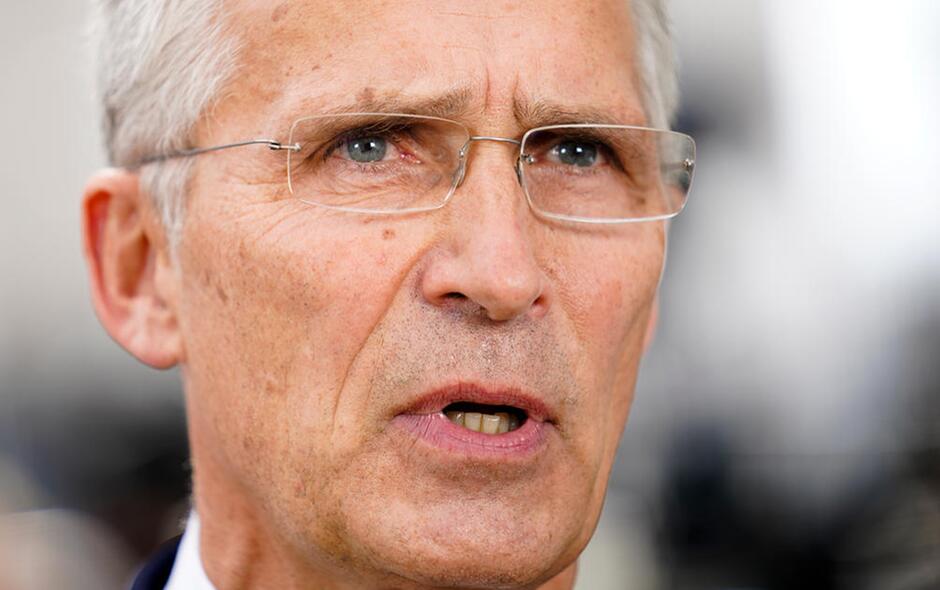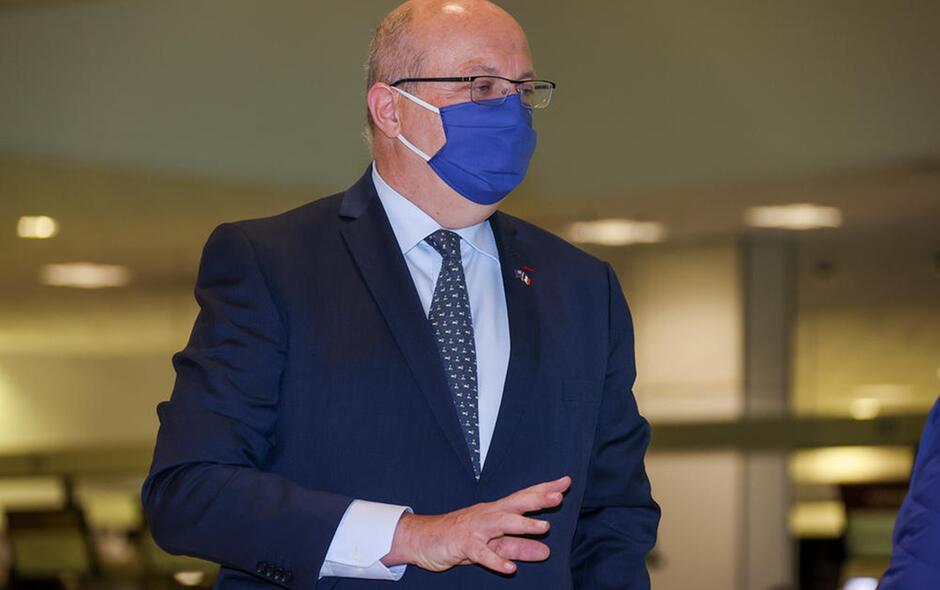
A U.S. and British deal to supply nuclear-powered subs to Australia — which had been set to buy diesel-powered ones from a French company instead — has France crying foul, with support from European Union diplomats. But NATO Secretary General Jens Stoltenberg didn’t take sides during an interview Wednesday, instead emphasizing cohesion about the alliance’s major goals.
“I fully understand France’s disappointment. At the same time, NATO allies agree on the big picture on the most important challenges, and that is that we have to stand together» to address common challenges, including a shifting global balance of power, he told The Associated Press on the margins of the U.N. General Assembly.
Stoltenberg said he was confident that France, the U.K. and the U.S. “will find a way forward and to not make this disagreement create lasting problems for the alliance, because we all see the need for allies to stand together and to continue to modernize and adapt NATO.”
French officials have repeatedly decried the deal as a betrayal, with Defense Minister Florence Parly describing it Tuesday as “breach of trust between allies and a strategic turning point.” European Union foreign ministers expressed solidarity with France after a meeting on the assembly sidelines Monday night.
Frances lucurative contract
”France’s foreign minister on Saturday denounced what he called the “duplicity, disdain and lies” surrounding the sudden rupture of France’s lucrative contract to make submarines for Australia in favor of a U.S. deal and declared that a crisis is at hand among the Western allies.
He said he found out about the canceled contract in the Australian press. Le Drian said in a written statement Friday that the French decision to recall its ambassadors — at the request of President Emmanuel Macron — “is justified by the exceptional seriousness of the announcements” made by Australia and the United States.
What French officials have called a complex, multi-layered contract was about more than submarines. It was the underpinning for France’s vision of the critical Indo-Pacific region, where France has a presence and China is looking to bolster its influence.
The Naval Group said in a statement that consequences of the contract cancelation would be analyzed with Australia “in the coming days.” It noted that teams in France and Australia have been at work on the project for the past five years.
Australian employees working with Naval Group and their families have set up home in the Normandy port of Cherbourg. A union official, David Robin, told BFMTV that employees were informed there may be an option to keep them on.
Australian Foreign Minister Marise Payne’s office earlier had issued a statement responding to the diplomat’s recall and noting Canberra’s “regret” over its ally’s withdrawal of its representative. “Australia understands France’s deep disappointment with our decision, which was taken in accordance with our clear and communicated national security interests,” the statement said. It added that Australia values its relationship with France and looked forward to future engagements together.
Payne and Defense Minister Peter Dutton are currently in the United States for annual talks with their U.S. counterparts and their first with Biden’s administration. After the U.S. deal was made public this week, Australian Prime Minister Scott Morrison said he told Macron in June that there were “very real issues about whether a conventional submarine capability” would address Australia’s strategic security needs in the Indo-Pacific.
Morrison has not specifically referred to China’s massive military buildup, which has gained pace in recent years. Morrison was in Paris on his way home from a Group of Seven nations summit in Britain where he had talks with soon-to-be-alliance partners Biden and British Prime Minister Boris Johnson. Thebault said he had also been at the meeting with Macron and Morrison.
Morrison mentioned “there were changes in the regional situation,” but gave no indication that Australia was considering changing to nuclear propulsion, Thebault said. “Everything was supposed to be done in full transparency between the two partners,” he added.
Senior Australian opposition lawmaker Mark Dreyfus called on the Australian government to fix its relationship with France. “The impact on our relationship with France is a concern, particularly as a country with important interests in our region,” Dreyfus said. “The French were blindsided by this decision and Mr. Morrison should have done much more to protect the relationship.»




